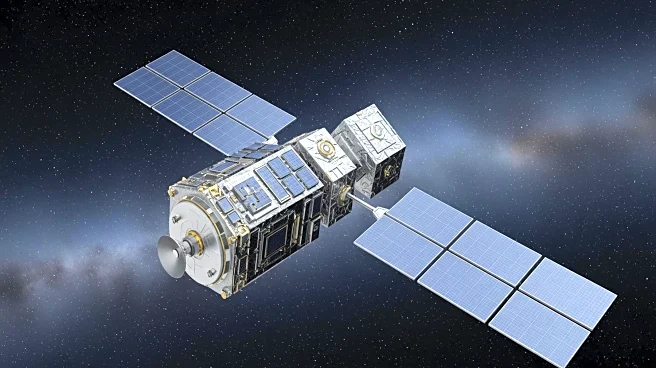What's Happening?
The Russian satellite Luch-Olymp, which had previously raised concerns among NATO members due to its reconnaissance capabilities, is reportedly moving to an end-of-life orbit. This development follows maneuvers that suggest the satellite is nearing the end of its operational
mission. The satellite had been closely monitored for its potential to eavesdrop on other satellites, including those used by the German military.
Why It's Important?
The repositioning of Luch-Olymp could temporarily reduce Russia's satellite reconnaissance capabilities, alleviating some of the strategic concerns for NATO. However, the situation highlights the ongoing challenges in space security and the need for international cooperation to manage space assets responsibly. The development also underscores the importance of monitoring and regulating space activities to prevent potential conflicts.
What's Next?
As Luch-Olymp nears the end of its mission, attention will shift to Russia's future plans for satellite deployments. The country may continue to develop and launch new reconnaissance satellites, which could reignite concerns among NATO members. Ongoing dialogue and transparency in space operations will be essential to maintaining stability and preventing misunderstandings in this strategic domain.


















